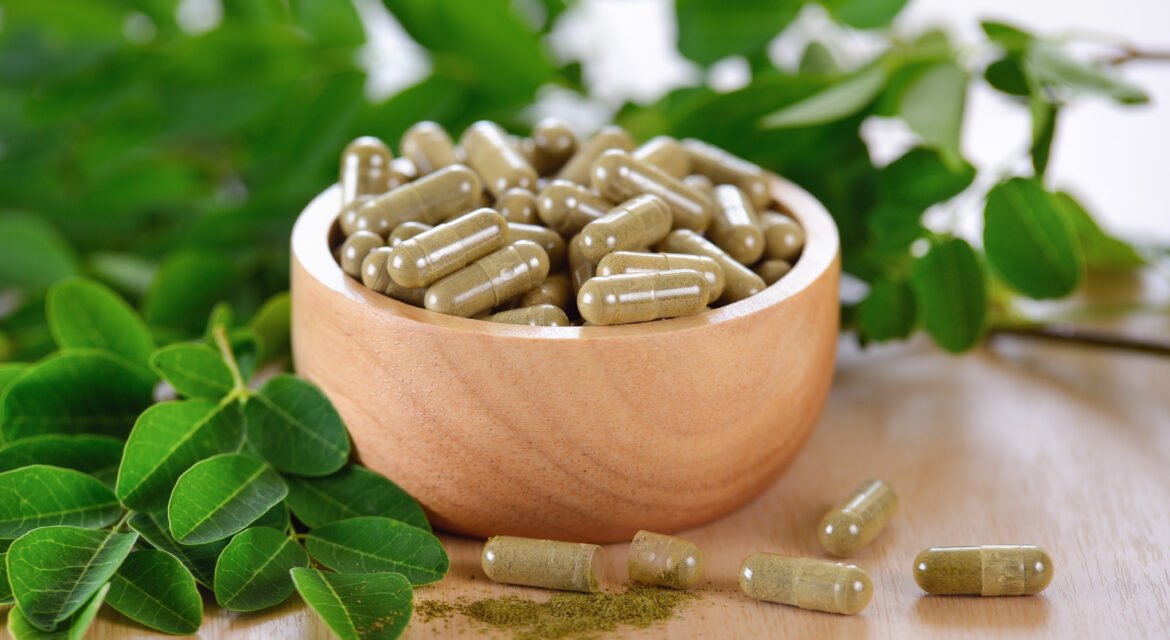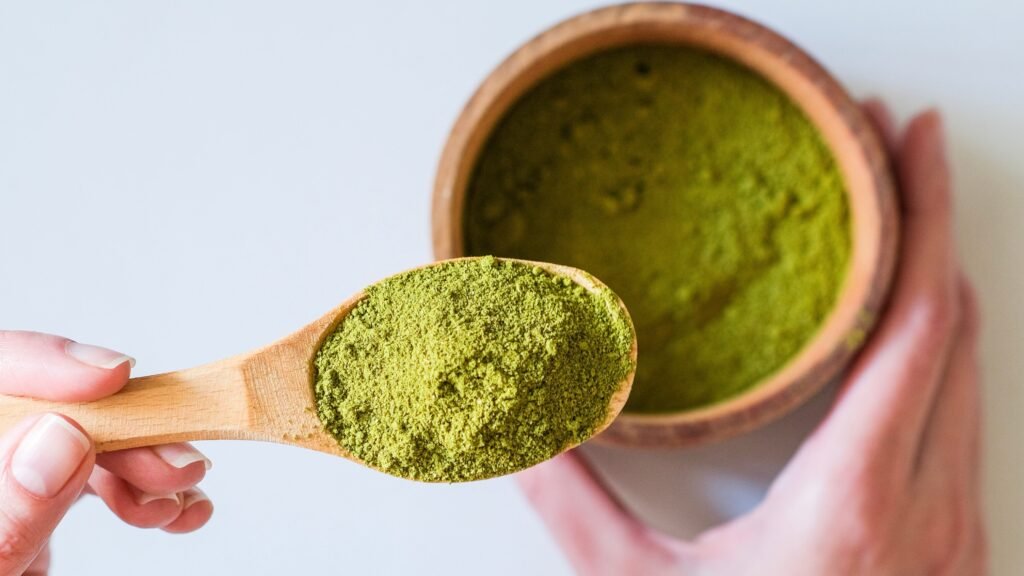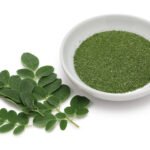 22 April 2025
22 April 2025The Ayurvedic Properties of Moringa You Didn’t Know
Moringa, also known as Shigru in Ayurveda, is a plant that has been celebrated in Indian traditional medicine for thousands of years. Often called the “Miracle Tree,” Moringa oleifera is native to parts of India, Africa, and Asia, and is recognized not just for its exceptional nutritional value, but also for its potent therapeutic potential. While many people know Moringa as a superfood packed with vitamins and minerals, few truly understand the depth of its Ayurvedic applications and how it balances the body on a holistic level.
A Tridoshic Herb in Ayurveda
One of the most fascinating aspects of Moringa in Ayurveda is its ability to balance all three doshas—Vata, Pitta, and Kapha. This makes it a rare and powerful herb. Its light, dry, and heating qualities make it especially effective at pacifying Kapha and Vata when used appropriately. At the same time, it helps in detoxifying excess Pitta from the system due to its mildly bitter and pungent taste.
According to Ayurvedic texts, Moringa has a Katu rasa (pungent taste), Tikta rasa (bitter taste), and Laghu (light) and Tikshna (sharp) qualities. These properties make it excellent for stimulating digestion, improving circulation, and clearing accumulated toxins (Ama) from the body.
Deep Detoxification and Digestive Support
Moringa is considered an exceptional herb for cleansing the digestive tract and supporting the Agni (digestive fire). It helps eliminate waste from the colon, reducing bloating, gas, and indigestion—especially useful for individuals with sluggish digestion or accumulation of Kapha.
Moreover, its bitter and pungent nature supports liver function and enhances bile flow, which further aids in fat digestion and metabolic efficiency. This detoxifying action is vital in Ayurveda for maintaining overall health and preventing disease.
Anti-inflammatory and Joint Health Support
In Ayurvedic practice, Moringa is frequently recommended for conditions caused by an aggravated Vata dosha, such as joint pain, stiffness, and arthritis. Its heating nature, combined with anti-inflammatory properties, helps ease the dryness and cracking often experienced in Vata disorders. Many classical Ayurvedic formulations for joint care include Moringa for this reason.
Boosting Immunity and Vitality (Ojas)
Ayurveda places great emphasis on the concept of Ojas, which represents the essence of vitality, immunity, and mental clarity. Moringa, with its high concentration of antioxidants and micronutrients, nourishes and supports Ojas. Regular consumption of Moringa powder is said to strengthen the immune system, promote energy, and enhance resilience to stress and fatigue—making it an ideal rejuvenator (Rasayana).
Blood Sugar and Cardiovascular Health
Moringa’s bitter taste and sharp potency make it suitable for regulating blood sugar levels, a condition often linked to Kapha imbalance. In Ayurveda, herbs that cleanse the blood and stimulate metabolism are preferred for managing diabetes and sluggish circulation. Moringa’s action on the pancreas and its blood-purifying qualities make it highly beneficial in maintaining healthy blood sugar and cholesterol levels.
Skin and Hair Nourishment
From an Ayurvedic point of view, glowing skin and healthy hair are reflections of inner balance and clean blood. Moringa supports both by purifying the blood and nourishing the tissues. Its detoxifying nature helps clear skin conditions rooted in Pitta and Kapha imbalances, such as acne or oily skin, while its nutrient density strengthens the Rakta (blood) and Mamsa (muscle) dhatus (tissues), which indirectly support hair growth and skin elasticity.

When and How to Use Moringa in Ayurveda
Moringa is often consumed as a fine powder (churna), and is best taken in warm water, milk, or mixed with ghee or honey depending on one’s constitution. For Vata and Kapha types, mixing Moringa powder with warm milk or ghee is recommended. For Pitta types, combining it with honey or water works better.
- Vata types benefit from Moringa’s warmth and should take it with ghee or sesame oil.
- Pitta types should use it in moderation and avoid pairing it with overly heating substances.
- Kapha types will find Moringa especially beneficial as it helps to reduce excess mucus, stagnation, and lethargy.
Final Thoughts
The Ayurvedic wisdom surrounding Moringa goes far beyond its superfood status. It is a deeply therapeutic herb that can be integrated into daily wellness routines to promote balance, vitality, and detoxification. Whether you’re looking to improve digestion, support your immune system, or just bring more harmony into your doshic balance, Moringa stands out as a potent ally. Understanding its Ayurvedic properties gives us a deeper appreciation for this ancient gift of nature and helps us use it more mindfully and effectively.





